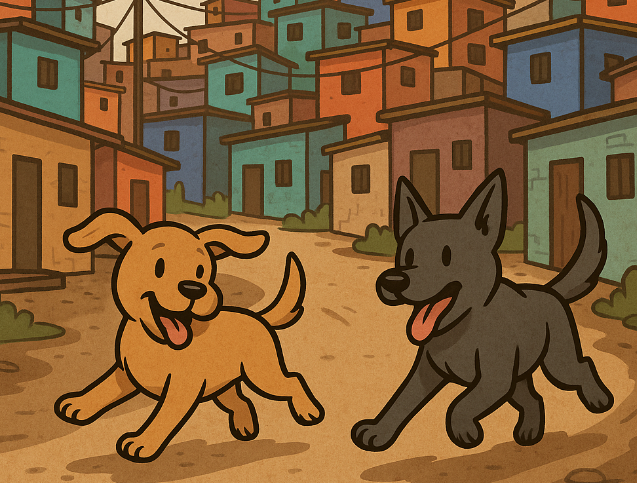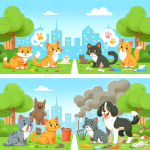
Ever wonder what happens to pets after natural disasters?
A new study from Brazil uncovered a surprising truth: rescued dogs and cats face health challenges long after the crisis ends. From tick-borne infections to skin problems, researchers found that even the most loveable survivors carry the hidden scars of disaster. But here’s the good news — science shows there are simple ways you can help pets live longer, happier lives. 🐶🐱
1. Infection Is the Silent Enemy — But Prevention Is Powerful
In this massive study of more than 6,000 rescued animals, nearly half of cats and one-third of dogs suffered from infectious diseases.
- Cats often faced feline immunodeficiency virus (FIV) and feline respiratory infections, while dogs struggled with ehrlichiosis, a tick-borne illness.
- Adult and senior animals were most at risk — with seniors four times more likely to get sick than younger pets.
Pet Parent Tip: Keep vaccinations up to date, use flea and tick prevention regularly, and schedule annual wellness exams — especially for older pets. Think of it as your pet’s “armor upgrade” against invisible enemies.
2. Skin and Parasite Problems Are More Than “Just Itchy”
Both dogs and cats in the study had high rates of skin infections and parasite infestations, often caused by fleas, mites, or poor living conditions.
- In dogs, dermatitis and ear infections (otitis) were common — especially in humid environments or crowded shelters.
- Cats battled fleas, ear mites, and fungal infections — all of which can spread fast in multi-pet homes.
Pet Parent Tip: Regular grooming isn’t vanity — it’s science! Brushing helps you spot early signs of trouble. Add a monthly parasite treatment and keep bedding clean and dry.
Seniors Need Extra TLC — and Routine Makes All the Difference
Older pets had the highest odds of disease, up to four times greater than puppies or kittens. Aging immune systems, stress, and chronic exposure to poor environments take a toll.
Pet Parent Tip:
- Keep routines steady — pets thrive on predictability.
- Add joint-friendly supplements or senior-formulated diets.
- Create cozy spaces that reduce stress (bonus points for a sunny nap zone).
❤️ Share Your Pet’s Story
Rescued pets show us resilience in its purest form. Whether your cat came from a shelter or your dog found you after a rough start, their recovery proves what love and science can do together.
💬 How do you keep your pet healthy and happy? Tell us in the comments or tag us with #ScienceForPets — because every wag and purr deserves to be celebrated.




